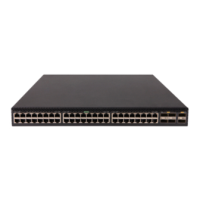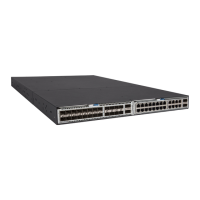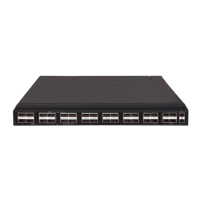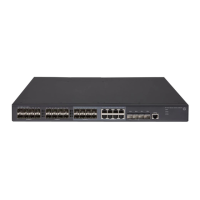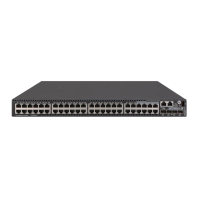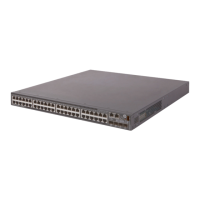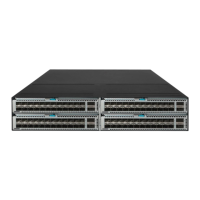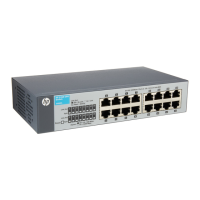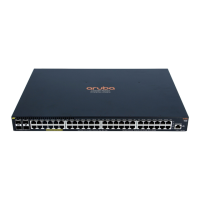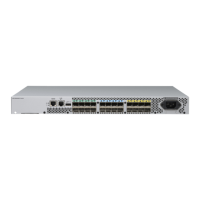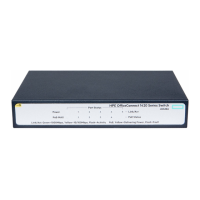82
Configuring SNMP
This chapter provides an overview of the Simple Network Management Protocol (SNMP) and guides
you through the configuration procedure.
Overview
SNMP is an Internet standard protocol widely used for a management station to access and operate
the devices on a network, regardless of their vendors, physical characteristics, and interconnect
technologies.
SNMP enables network administrators to read and set the variables on managed devices for state
monitoring, troubleshooting, statistics collection, and other management purposes.
SNMP framework
The SNMP framework comprises the following elements:
• SNMP manager—Works on an NMS to monitor and manage the SNMP-capable devices in the
network.
• SNMP agent—Works on a managed device to receive and handle requests from the NMS, and
sends notifications to the NMS when events, such as an interface state change, occur.
• Management Information Base (MIB)—Specifies the variables (for example, interface status
and CPU usage) maintained by the SNMP agent for the SNMP manager to read and set.
Figure 27 Relationship between NMS, agent, and MIB
MIB and view-based MIB access control
A MIB stores variables called "nodes" or "objects" in a tree hierarchy and identifies each node with a
unique OID. An OID is a dotted numeric string that uniquely identifies the path from the root node to
a leaf node. For example, object B in Figure 28 i
s uniquely identified by the OID {1.2.1.1}.
For an NMS to identify the device models, each device model has a unique device OID (Devices of
the same model use the same device OID.)
An IRF fabric does not have a device OID. When an NMS requests its device ID from an IRF fabric,
the IRF fabric responds by using the OIDs of all its member devices.
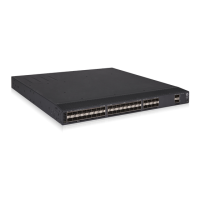
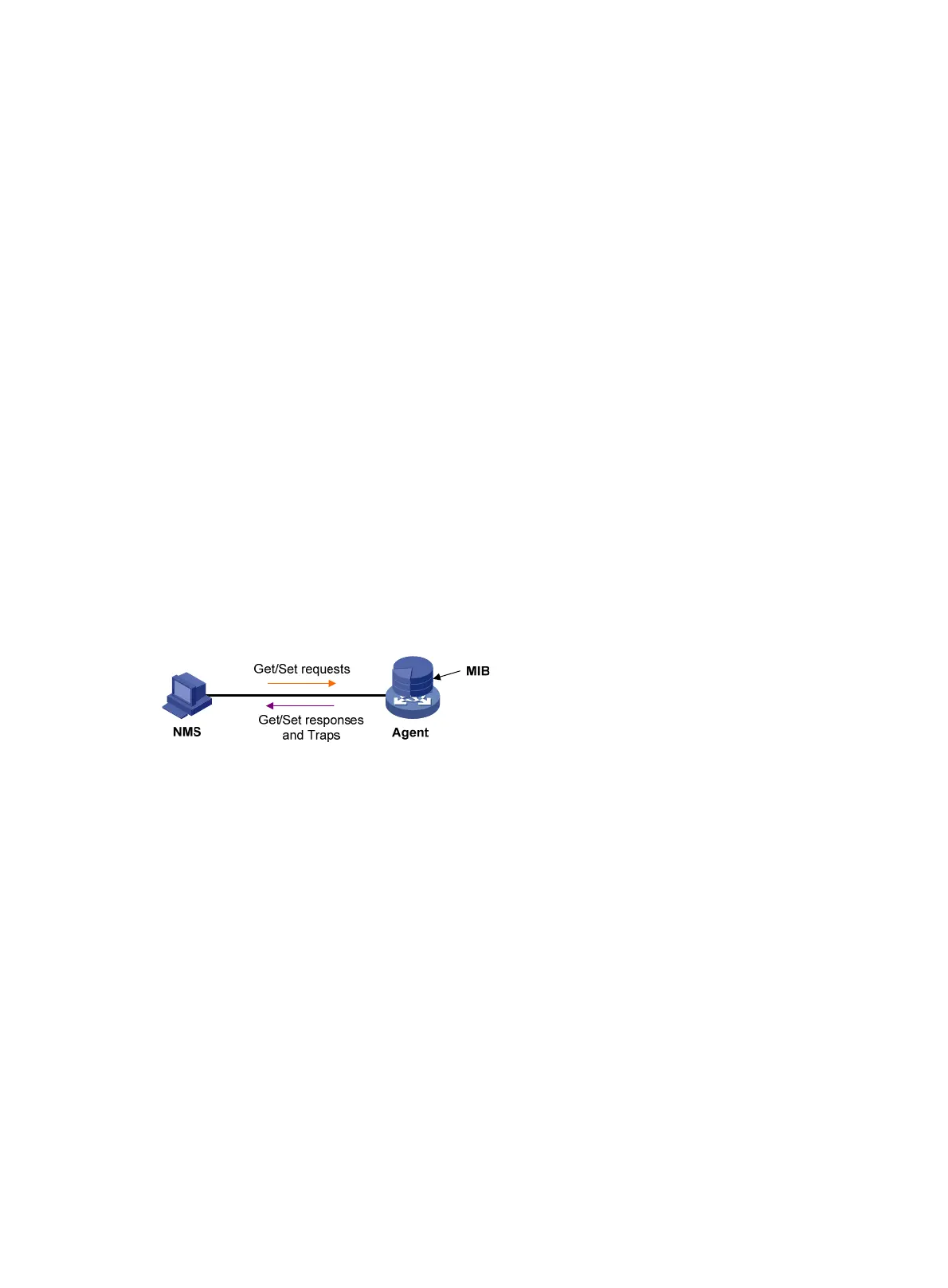